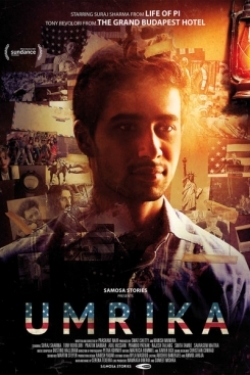-
Independent films have stories to tell. Hence, it is always a better idea to watch and support such movies. This emotional drama talks about the cultural gap between two countries, or more specifically, between two maddeningly diverse countries.
Ramakant (Suraj Sharma) lives with his mother and father in a small village in India. After his elder brother, Udai (Prateik Babbar), left for the great America, the village lights up with stories and rumors about the Western country. Udai's mom almost goes mad with pride sliding on the verge of vanity, leaving Ramakant to think of only good things about his brother. Although a little late, Udai's letters arrive at the village, and are read by everyone with pomp and circumstance. Few months pass by and Udai's family, now reduced to two after the sudden death of the patriarch, begin to panic as there is no news from the man who brought them pride. Money was never the issue because it never used to come, but what about the letters? A suspicious Ramakant leaves his ailing mother in the village and sets out in search of his brother who was helped by a distant uncle...
Within the first ten minutes, one will know that there is heart in the film. If not for only monetary purposes, one understand that the film is made to induce emotions. It has an interesting plot which has only been seen before in Malayalam films (as per my knowledge, but I could be wrong), where the story moves forward with the help of letters that Udai used to send back home. Or did he? Well, that is what Ramakant intends to find out. His journey to the city is purely reminiscent of the 80s and 90s when in a city like Bombay, people used to arrive with dreams without even a job in place for starters. The good old hustling for money and hesitating to talk to that girl. It shows the developmental differences between India and the USA: the eating habits, et al, added into the screenplay with pinch of humor and sarcasm. It is also delightfully fun to watch these sequences unfold, with some of the best being the characters' interpretations about the American life.
The climax is where the emotional tinge chugs at your heart; concluding that mothers, no matter what, just want their sons and daughters to be happy. Nothing more. Arguably, the best thing that works here is Dustin O'Halloran's nonchalant score, which perfectly drives the sequences. Although the second half is duller and slower than the first, a drama-lover wouldn't mind sitting through the 100 minutes. The finality is pretty obvious and that takes the cherry out of this pie which could have used a little more icing if not more dough.
Sharma is decent as the hapless younger brother who is both proud and jealous of his brother. His eyes are enough to make you understand the character. Babbar and other supporting cast are also fine in the respective roles. The actress who plays Ramakant's love interest definitely takes a prize, though. The capturing of Bombay is not that great, but still works for the flow of the film. Cinematography and direction are fine.
BOTTOM LINE: Prashant Nair's "Unrika" is a nicely-made drama film about a family and their uncommon problems. An afternoon watch will be enough. Rent a DVD!
Can be watched with a typical Indian family? NO0November 16, 16 -
"Prashant Nair’s Umrika, like many independent Hindi features from India had an incredibly difficult time finding distribution because of the over-saturation of mainstream garbage cinema Bollywood continues to pump out like a vomiting gutter-pipe. Yet, thanks to the revelation of online-streaming media and the newly sprouting avenues as well as rave reviews from the Sundance Film Festival, Nair’s little film found a home in Netflix. God bless."
FULL REVIEW: https://extrasensoryfilms.wordpress.com/2016/12/09/three-stories-from-indias-rural-heartland/0June 27, 17












